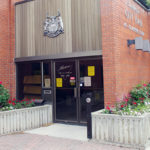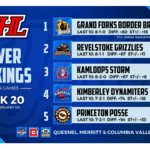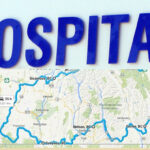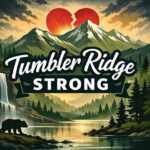Home »

I got more out of Brady’s work than from years of study
Book Review
By Derryll White
Brady, John (1988). A Stone of the Heart.
 This is John Brady’s first novel, in which he introduces Dublin police sergeant Matt Minogue. I have read and reviewed a couple of Brady’s later works, and liked them very much. So I finally laid claim to a copy of ‘A Stone of the Heart’ and decided to see how the legend began. I immediately liked Brady’s opening, telling me that he places himself within a tradition.
This is John Brady’s first novel, in which he introduces Dublin police sergeant Matt Minogue. I have read and reviewed a couple of Brady’s later works, and liked them very much. So I finally laid claim to a copy of ‘A Stone of the Heart’ and decided to see how the legend began. I immediately liked Brady’s opening, telling me that he places himself within a tradition.
‘Too long a sacrifice can make a stone of the heart.’ – W.B. Yeats, “Easter 1916”.
Brady opens with a strong sense of Dublin, evoking memories in me of James Joyce and Brendan Behan. He is proud of his heritage and sure and precise with his words. By the end of the first chapter I know why he came early to his success in the mystery genre. He is a serious writer, careful both in his language and his plot development. His attention to atmosphere puts me in mind of Giles Blunt, another Canadian successful in this genre. I say Canadian because John Brady had adopted this country as his base, although he writes passionately of Ireland.
It is interesting to read about Ireland’s “troubles” in a novel. So distant now, eclipsed by Pakistan, Iran, Iraq, Afghanistan – so much trouble – Brady is still capable of taking me back to a time when I seriously questioned the function of religion. Protestants and Catholics tearing a country apart. And as Brady highlights, so many innocents damaged irreparably in the name of God and country.
I appreciate works of fiction that allow me to re-examine how I came to be the person I am. Is this a writer’s duty? Perhaps not, but those who get into my head and make me think, as Brady does, achieve a special place in my personal firmament.
Brady drills down into the troubles, into the Irish history and class consciousness at their root, into the base Irish character. I have to say that I don’t understand it all, the cultural conditioning that allows religion to be the catalyst for what I see as class warfare. But Brady’s work is careful and several times he brings me to a point where I think I might understand, only to lose all thought in a dawning awareness of my own essential cultural ignorance.
In the end, I don’t know what it is to be Irish, but it’s not for Brady trying to let me understand. The slaughter of innocents in a quest for religious dominion? Or a clash of an old, feudal Ireland with a new slick urban one? I don’t know, but I got more out of Brady’s work here than I have out of years of cultural study. Man is base and sometimes lacking in reason, but there are always others who stand tall with tolerance, love and forgiveness.
Read John Brady! I certainly intend to continue to.
********
Excerpts from the novel:
DISPERSAL – “People don’t like to realize that others had the same inspirations or troubles or joys as countless others, sort of offends against one’s sense of uniqueness. Our treasured assumptions about how we control the world.”
IRELAND – Already some streetlights were glowing purple, a prelude to the glare of yellowing light which disfigured towns all over Ireland. The sun was gone now. Overhead, puff carpets of grey clouds showed pink edges. The world was straining toward the west.
THE TROUBLES – “Something about ‘duty.’ I asked him if he thought it was the duty of an officer in the Irish Army to resign his commission and work against the laws of a democratic state just because he didn’t agree with the way the country was being run. I thought he was going top spit at me, so I did. But he clammed up then after a dirty big sneer at me. That’s as far as we got with that boyo.”
AMERICA – “America is a country full of savages. They don’t know what they’re at half the time. Look at the telly, I mean. Or should I say, don’t look at the telly,” Kilmartin said indignantly.
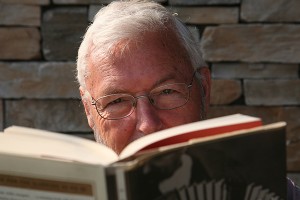 – Derryll White once wrote books but now chooses to read and write about them. When not reading he writes history for the web at www.basininstitute.org.
– Derryll White once wrote books but now chooses to read and write about them. When not reading he writes history for the web at www.basininstitute.org.
